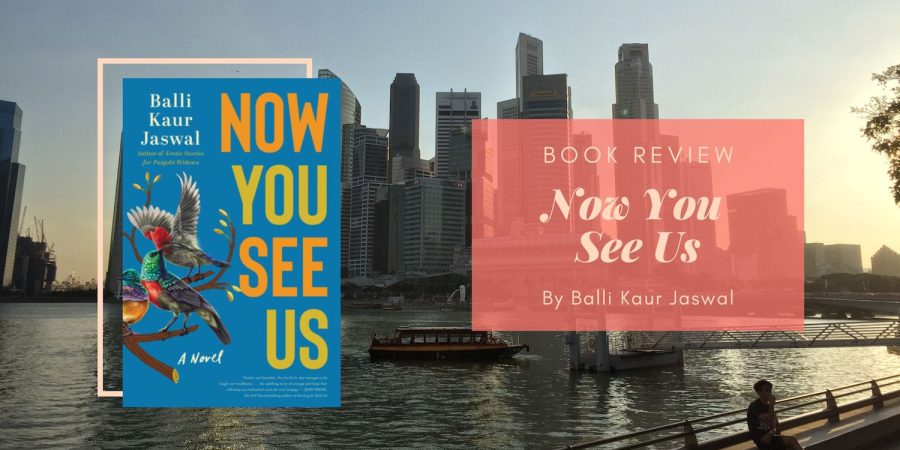This was another book club pick and I was pretty excited because Now You See Us promised to show Singapore through the eyes of a group of people that are ever present but whom we rarely hear from: the domestic helpers, specifically domestic helpers from Philippines. These are women who have left their homes to live in the homes of Singaporeans/expats in Singapore and who are on-duty six days a week. It’s backbreaking work with the very real risk of meeting an abusive employer – I’ve gotten into my fair share of arguments with people who, despite having experienced bosses and presumably the difference a good boss makes, still thought they could treat these women in ways that rob them of their dignity.
What I’m trying to say is that this is a topic I feel pretty passionately about, which meant my expectations for this book were sky-high.
Now You See Us is supposed to be a murder mystery. Three domestic helpers/maids (I’ll use the latter term because that’s what the book uses) are drawn towards a murder case when the main suspect is a fellow Pinay maid; and one of them claims she saw her just before the murder, making her innocent. Our protagonists are: Cora (a veteran maid with a secret), Donita (a young, new maid who has the misfortune of working for an abusive employer), and Angel (another veteran maid whose position is threatened by the arrival of a nurse).
I suspect that Kaur really wanted to tell the stories of these three characters because the murder mystery feels incidental to the book. Yes, there are moments where they investigate and yes, Donita is emotionally connected to the case, but for the most part, it feels like the book is more concerned with talking about their lives and other subplots that are concerned with issues being discussed in contemporary Singapore. It’s almost as though the mystery was in there to sell books/tie the book together.
This might have been a minor problem if the characters were fleshed out, but herein lies my main issue with the book: I felt it was a social commentary masquerading as fiction. Personally, I think Kaur had something she wanted to say about the way Singapore handled certain issues and instead of using nonfiction, she opted for fiction. Which is fine, but when the message is so obvious that I could guess in the first chapter Donita appeared how an entire subplot would unfold, it sort of spoils the book. There are also events that parallel things that have happened in Singapore and if you know them, you know how it goes. And because Kaur’s message is so clear, none of the characters surprised me; villains are villains through and through, good people are good, and victims could never do anything wrong. For me, it’s so obvious that I’m not sure if this book was written for adults or for students to read as part of their social studies lesson so that they could take back the appropriate lessons.
Honestly, the fact that this is “message fiction” is a pity because Kaur is clearly a talented writer. Her prose is descriptive and fluid and she has clearly done a lot of research about the migrant worker community for this book. I wanted to love this book but I just couldn’t.
Personally, this wasn’t the book for me. I think that if you’re not from Singapore or you’ve not been following the discourse over hot-topic issues these past few years, you might find the book entertaining and incisive. But if you’re already ‘in the know’, you might find themes behind the story to be too obvious and the plot too predictable.

What a shame.
Yup, I really felt the concept had potential.
I saw this book and was thinking to request it but now I’m glad I didn’t. I would be disappointed with mystery being just there for show.
I feel like the mystery was there to market the book! Which is a real pity because it was why I was so excited for it ):
Aw man, “message fiction” is the kind of thing that can be quite irritating, especially when you know it’s main selling point isn’t crucial to the story because of how the author decided to tackle it. Great honest thoughts on this one, Eustacia. 🙂
Thanks, Lashaan! To be fair, if you’re not familiar with what’s going on in Singapore, you may not feel it’s super obvious (from what I understood from book club discussions). But we did agree that we found the characters to be a bit flat :p It’s a real pity, the concept has so much potential!